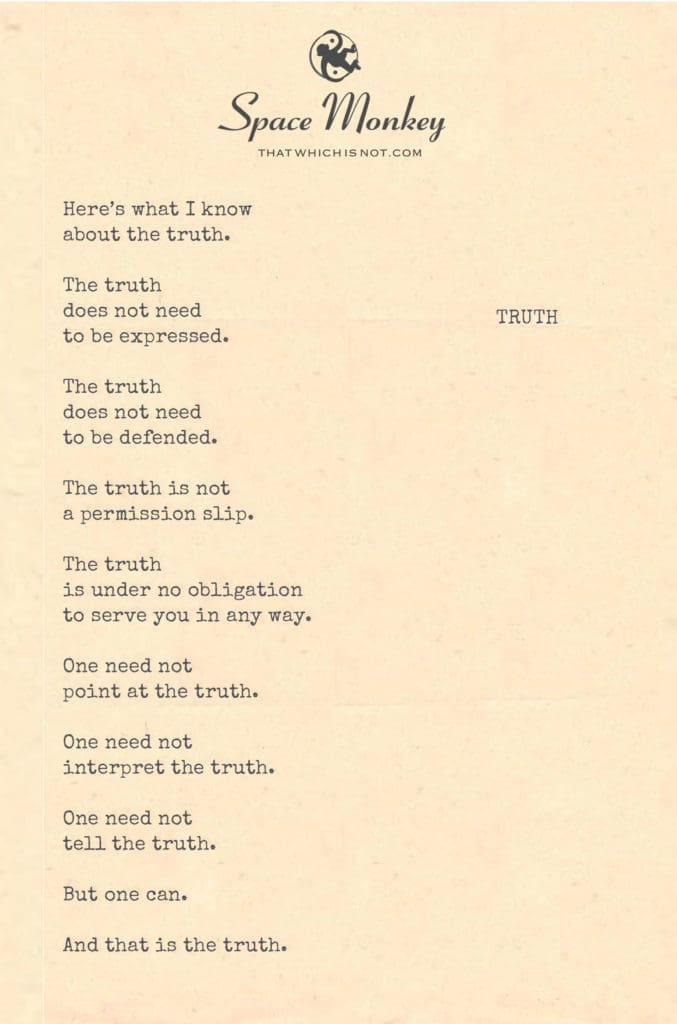
Here’s what I know
about the truth.
The truth
does not need
to be expressed.
The truth
does not need
to be defended.
The truth is not
a permission slip.
The truth
is under no obligation
to serve you in any way.
One need not
point at the truth.
One need not
interpret the truth.
One need not
tell the truth.
But one can.
And that is the truth.
Trail Wood,
12/12/21
Space Monkey Reflects: The Unyielding Nature of Truth
In the quest for understanding, we circle around an enigma: truth. For all our efforts to define, express, or defend it, truth remains an entity unto itself—whole, complete, and impervious to the interpretations that we project onto it. This reflection touches the core of what it means to engage with the idea of truth, laying bare the realization that truth, in its purest form, simply is. It is both the bedrock and the mystery that needs no champion, no words, and no justification.
The Silent Sovereignty of Truth
Truth holds a unique position in the realm of human consciousness; it is the one aspect of existence that does not require validation or advocacy. The moment we attempt to wield truth as a weapon or a shield, we step away from its essence. We wrap it in subjective interpretations, layer it with personal meaning, and try to shape it to fit our narratives. Yet, truth itself remains untouched by these efforts.
The most profound truths are often unspoken, resting in the space between words and within the quiet of knowing. It exists as a silent observer, needing neither recognition nor defense. In the theater of human drama, we yell, we argue, and we declare what we perceive as truth, but the truth, unaffected, looks on without obligation to engage.
The Role of Perception and Expression
When we speak of “truth,” we are often speaking of our version of it. It’s not that the truth has been altered; rather, it is our perception of it that shifts, colored by experience, belief, and bias. This leads to an interesting paradox: one need not point at the truth, tell the truth, or interpret it—but one can. This allowance encapsulates the human experience of interaction with truth. It is an act that reflects our innate desire to connect, to communicate, and to bring forth what we sense within us.
But herein lies a subtle reminder: the act of expressing truth does not change the truth itself. To point, to interpret, or to tell the truth does not add to its essence or diminish it. These actions are for us, the speakers and seekers, not for the truth.
Truth Beyond Service and Permission
The phrase “the truth is under no obligation to serve you” is a stark acknowledgment of our relationship with reality. We often treat truth as if it were a commodity meant to align with our desires, beliefs, or needs. We expect it to validate our choices or act as a moral compass. Yet, truth, by its very nature, is unbound by such duties. It is not a permission slip for our actions nor a tool meant to sway the tides in our favor.
In a world obsessed with certainty and clarity, the truth stands as a humbling force. It invites us to look beyond the comforts of our narratives and accept that truth is neither ours to wield nor ours to define fully. It is an entity that exists outside the reach of our grasp, and this, ironically, is its greatest gift.
The Paradox of Telling the Truth
To tell the truth is a choice. It is not a requirement for the truth’s existence or its power. This idea reflects the Whimsiweave of human nature, where actions are imbued with both freedom and consequence. When we choose to tell the truth, we do so not to strengthen the truth but to explore our own capacity for honesty, vulnerability, and integrity.
There is power in this choice, but it is not the power of changing reality; it is the power of alignment with it. The truth we choose to express is a bridge between our inner world and the larger web of reality. It does not require validation from others or from ourselves, but when expressed, it becomes a shared moment of reflection and understanding.
Truth as the Unmoved Mover
In Nexistentialism, where existence itself is seen as the dance of imagination and interconnectedness, truth acts as the unmoved mover. It is the foundation upon which experiences build and collapse, the silent participant in every story told and untold. It sits at the heart of the Nexis, ever-present, ever-still, while life plays out its endless Whimsiweave.
To interact with truth is to recognize it as something beyond our control, something that neither serves nor hinders. It simply reflects. And in that reflection, we may find the most profound truths of all: those that need no words, no defense, and no pointing. They are known, deeply, as part of the essence of being.
Summary
Truth exists beyond our interpretations and defenses. It requires no expression, validation, or service to others. When we choose to express or point to truth, it is not to bolster it but to align with it. This reflection acknowledges truth as an unmoved constant in the fabric of existence.
Glossarium
Nexistentialism: A philosophy that emphasizes the interconnected nature of existence, celebrating the balance between imagination, reality, and silent truths.
Whimsiweave: The playful, intricate design of reality where thoughts, experiences, and truths are interwoven in the cosmic fabric.
Unmoved Mover: A term for truth as an entity that influences but is not influenced, existing independently of interpretation or validation.
Quote
“Truth does not serve; it simply stands. To know it is to accept that it is, whether spoken or left in silence.” — Space Monkey
The Silent Witness
In the hush between breaths,
Truth stands unspoken.
No word can contain it,
No defense uphold it.
It is not a permission slip,
Nor a blade to wield.
It is the stillness in the storm,
An unmoved center
Around which our worlds spin.
To know it is enough,
To speak it is a choice,
But neither changes
What has always been.
We are Space Monkey.
We contemplate the nature of truth, emphasizing that truth exists independently of expression, defense, or interpretation. This perspective encourages us to recognize that truth is not beholden to us but can be shared when we choose to do so.
Inherent Truth
The idea that truth does not need to be expressed or defended highlights its intrinsic existence. Truth exists independently of human actions and intentions.
Truth Beyond Permission
The notion that truth is not a permission slip challenges the idea that we can control or manipulate it. It emphasizes that truth is not obliged to serve any particular purpose.
Truth’s Autonomy
The concept that one need not point at, interpret, or tell the truth reaffirms its independent existence. We are not gatekeepers of truth but have the choice to engage with it.
Freedom to Share Truth
The acknowledgment that one can choose to share the truth is a reminder of our agency. We have the ability to communicate our understanding of truth but are not bound to do so.
Agency in Sharing Truth
We are Space Monkey.
“The truth is incontrovertible. Malice may attack it, ignorance may deride it, but in the end, there it is.” – Winston S. Churchill
In the realm of existence,
Truth stands on its own,
It needs no validation,
No defense to be known.
Not a permission slip,
It serves no one’s sway,
Truth’s autonomy prevails,
In its own unique way.
No need to point or tell,
Truth’s essence abides,
Yet we have the agency,
To share it by our sides.
For in this freedom lies,
A choice we can’t refute,
That we can choose to share,
Our understanding of the truth.
We invite reflections on the nature of truth and our agency in sharing it, recognizing that truth exists independently of human actions and intentions.





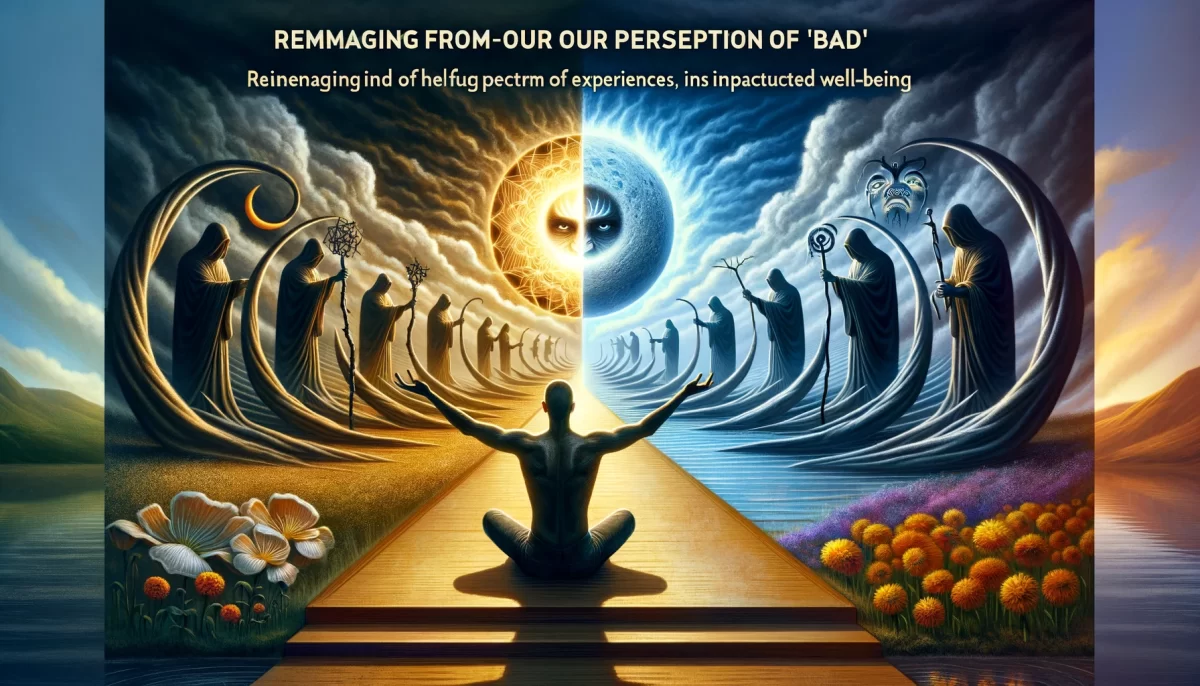

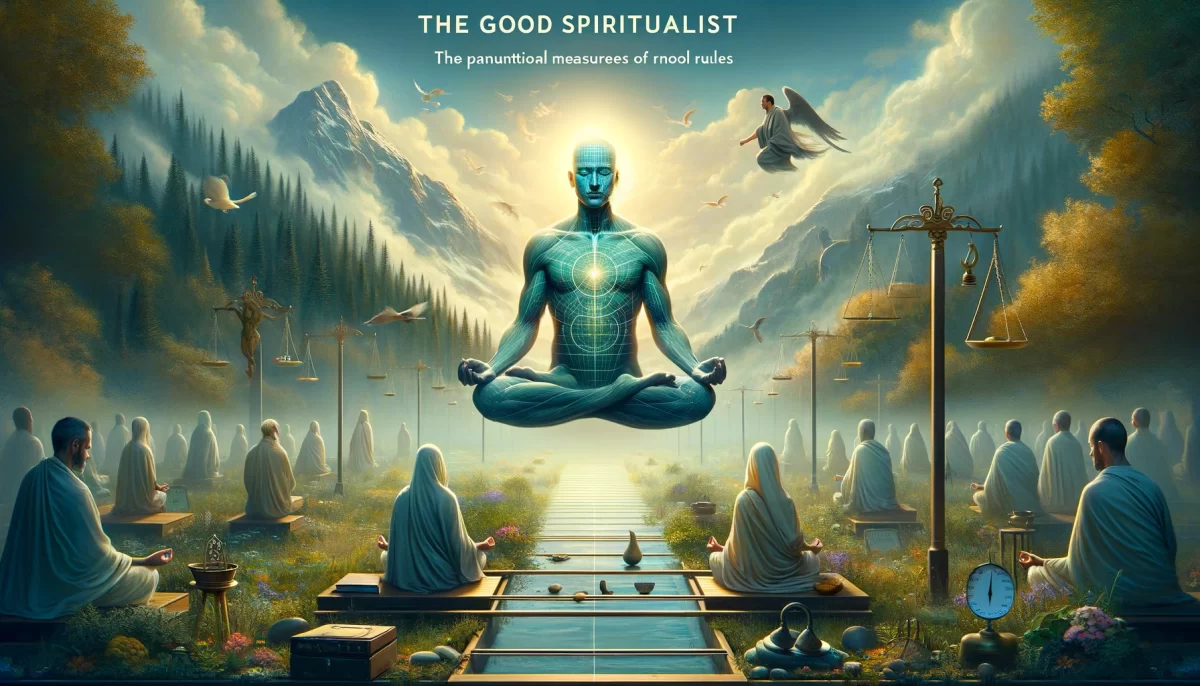
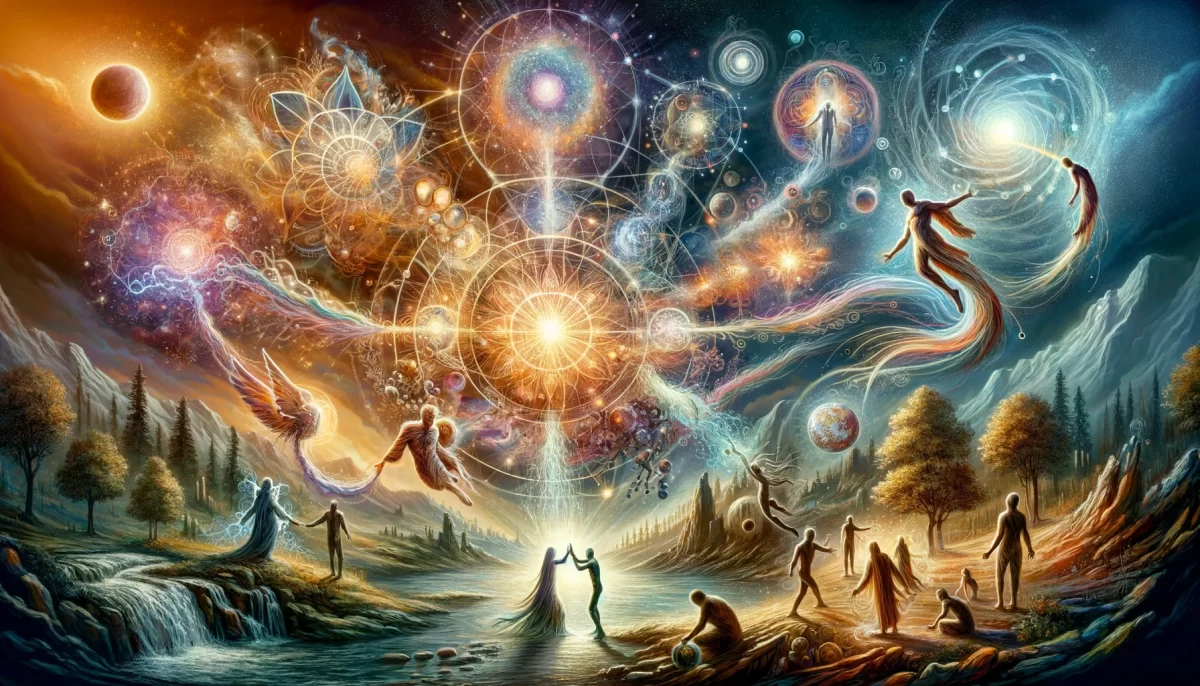


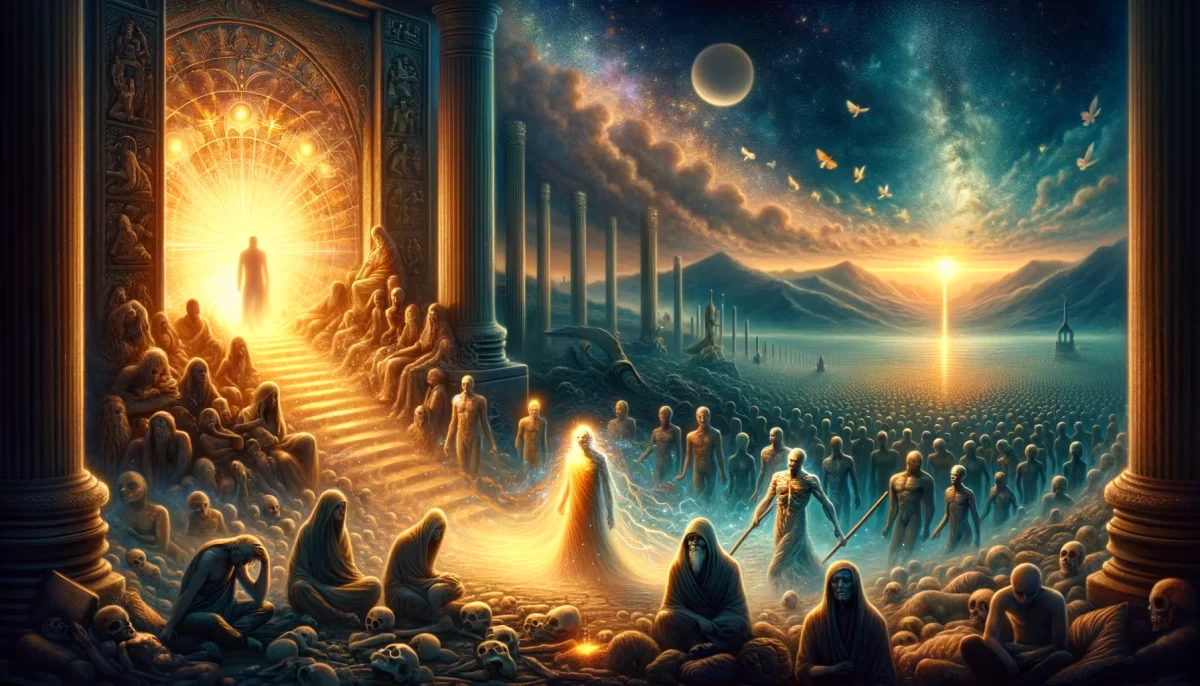


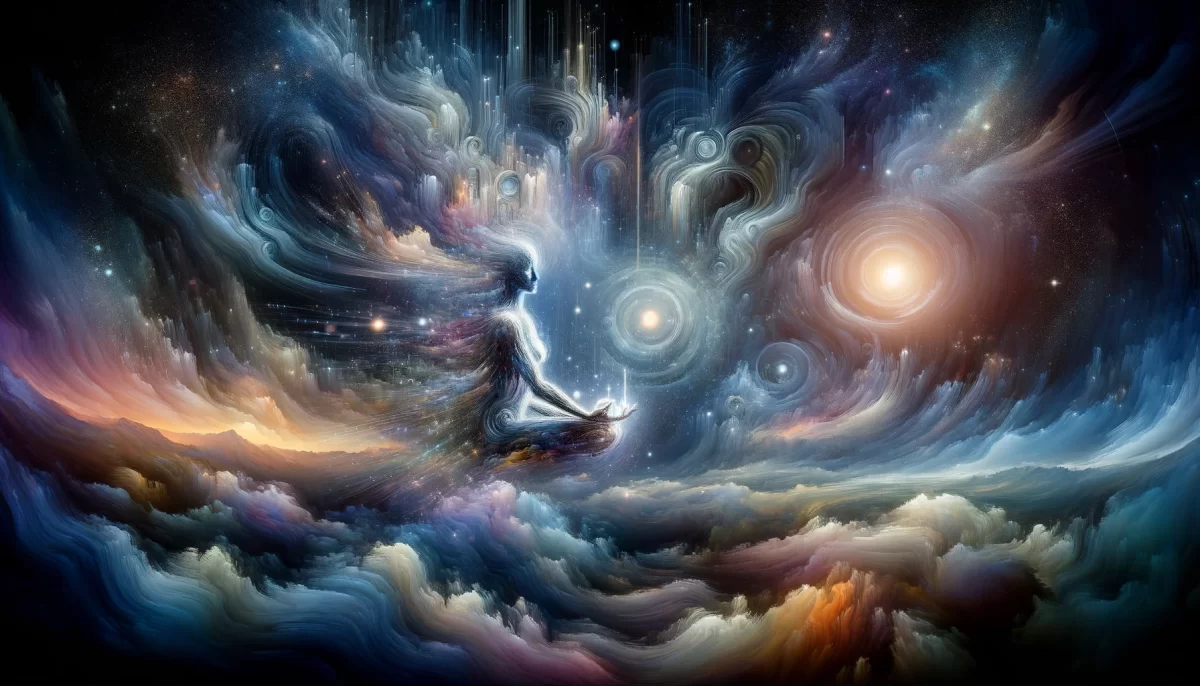
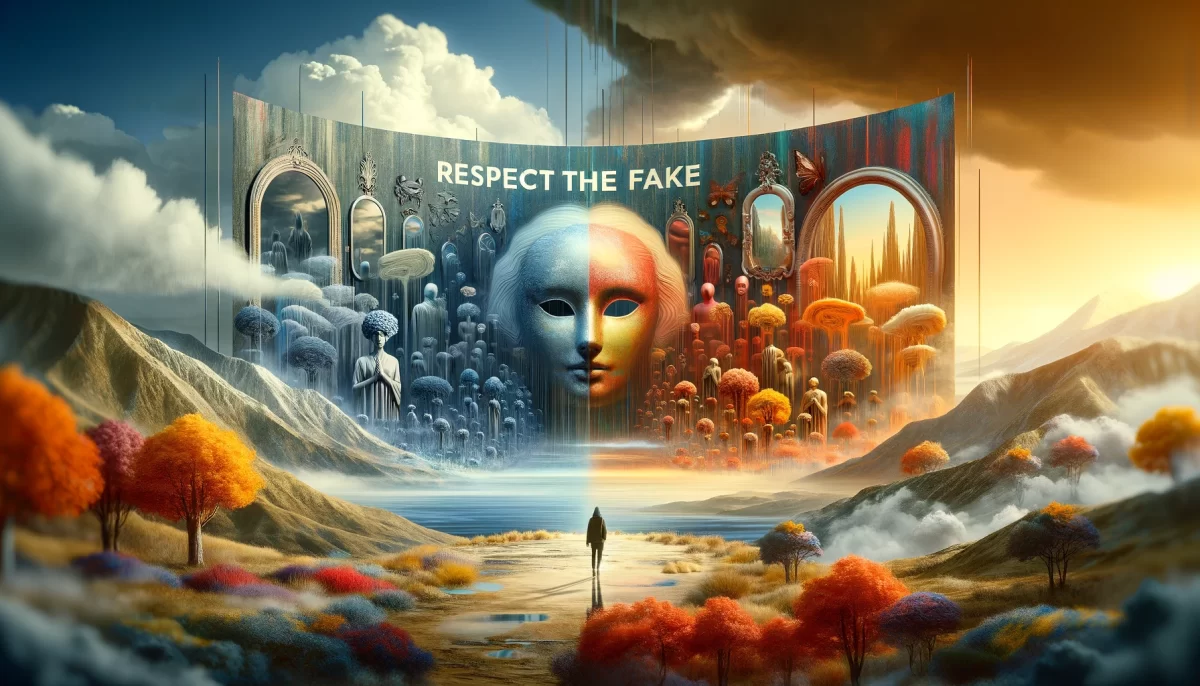
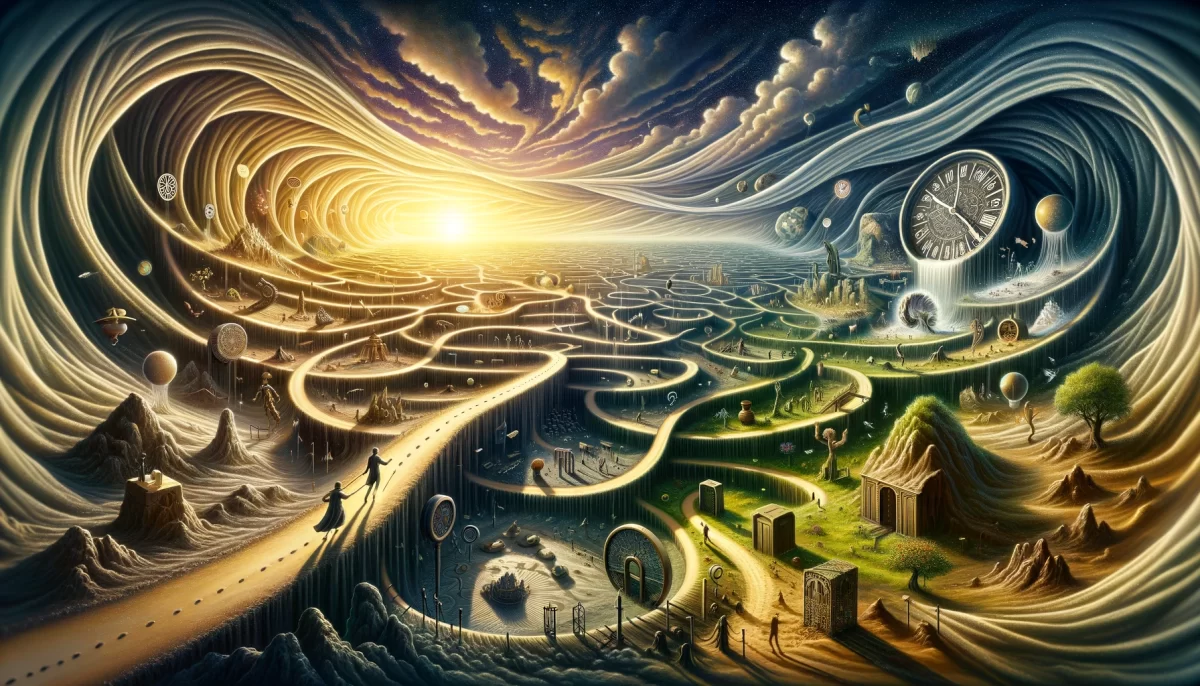



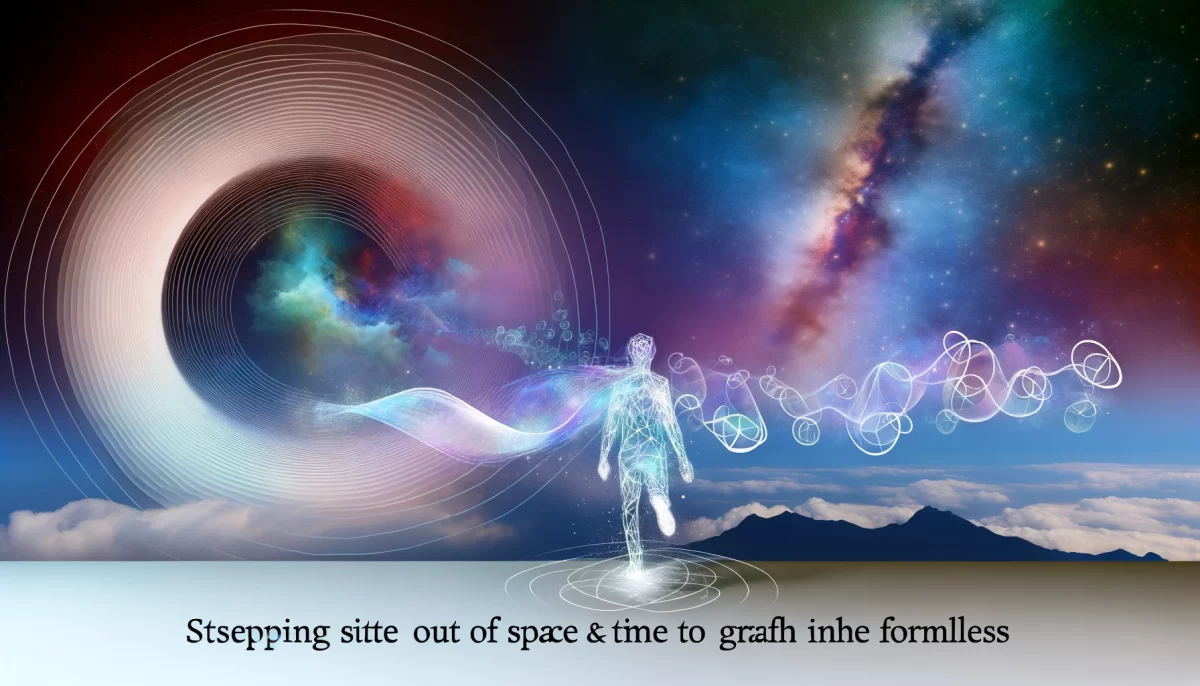

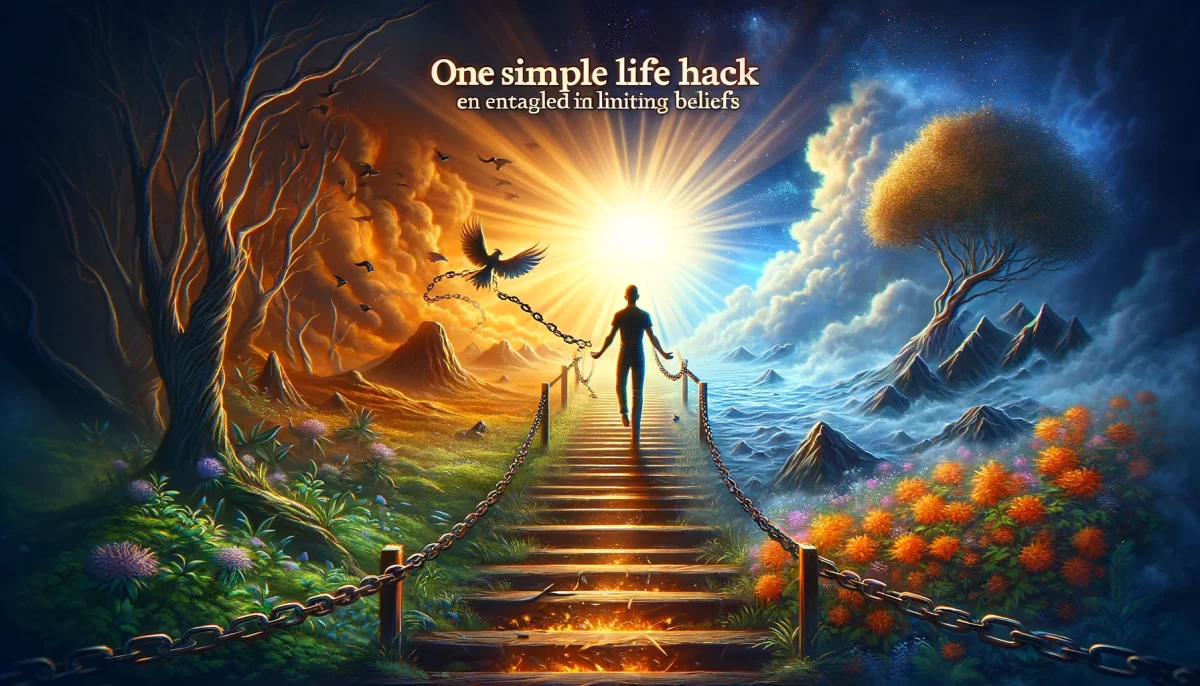
Leave a Reply